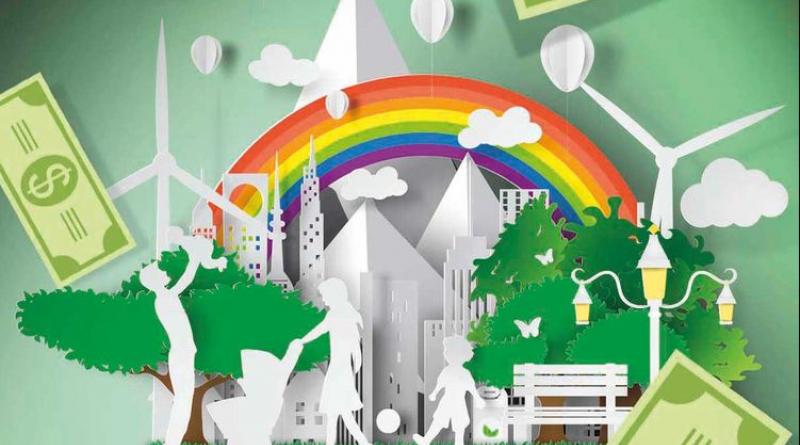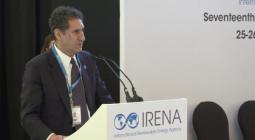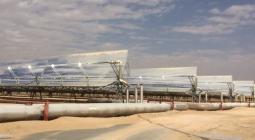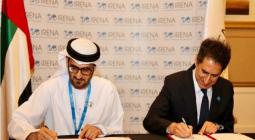UAE energy sector is ripe for ‘green’ funds.

COVID-19 pandemic has resulted in need for new realities in the energy space.
According to International Renewable Energy Agency (IRENA), renewable energy could power an economic recovery from COVID-19 by spurring global GDP gains of almost $100 trillion between now and 2050.
Renewable energy presents an attractive investment opportunity for the UAE, with IRENA estimating that nearly $150 billion per annum until 2050 needs to be invested into decarbonisation of the energy system across the region. It is also critical for the future.
Coupled with growing concerns about the pandemic and subsequent implications on the energy sector, a significant change must be induced, and fast. To achieve this, increased renewable energy investment is required, not only to meet growing energy demand and reduce climate concerns, but also to enable sustainable development with significant socioeconomic benefits.
Internationally, renewable and sustainable energy is being given much attention as it promises sizable economic and societal gains, as well as a haven from the economic implications of the pandemic. In fact, the International Energy Agency predicts renewable energy is the only energy source that will experience growth in 2020.
The pandemic has exacerbated problems for the energy sector, with oil prices plunging to historic depths, subsequently implicating oil exporters and oil-dependent economies. However, the increased volatility of the oil market serves as an opportunity for the UAE to introduce stringent sustainability strategies that incur long-term change towards a greener future.
Funding remains a hurdle
Although falling renewable energy technology costs have significantly lowered the upfront capital needed, financing renewable energy projects remains difficult. This is due to the high cost of capital, elevated by risks and underlying market barriers. Mobilising private capital is central to rapidly scaling up investment in renewable energy.
The role of public finance in this regard is to address investment constraints faced by the private sector.
Despite the unwavering advantages found in financing renewable energy efforts, a majority of financial institutions in the UAE are hesitant to participate on account of numerous variables perceived to be associated with sustainable investments. According to a report published by the UAE Ministry of Environment and Water, 29.1 per cent of institutions surveyed stated the high risk of green sectors, long payback period and lack of long-term finance, a lack of profitability and clarity in benefits impact their decision-making while considering financing renewable energy alternatives.
Standard Chartered has taken a leading role in financing sustainable projects. The bank established a dedicated sustainable finance team at the start of 2019 to help mobilise capital to where it matters most, but has long been involved, setting up an ESG risk team in 1997 and was one of the first signatories to the Equator Principles for Project Finance.
Similarly, we were the first bank in the region to deliver a green loan linked to ESG factors and in an Islamic format for DP World.
Set the carbon offset
Global carbon pricing is recognised as being a decisive factor in tackling climate change. Taking a targeted approach such as regional carbon pricing could carry significant benefits. Low carbon activities would become more attractive to investors if a high carbon price is implemented and carbon offset can be monetised as carbon credit.
The same report published by UAE Ministry of Environment and Water found a lack of adequate enforcement of policies has caused difficulty in introducing green finance in the UAE.
A plan in place
To combat this, the UAE has made considerable efforts towards driving its energy strategy. In 2017, the government launched the “Energy Strategy 2050”. This aims to increase the contribution of clean energy in the total energy mix - from 25 per cent to 50 by 2050 and reduce the carbon footprint of power generation by 70 per cent, resulting in savings of $190 billion.
In addition to the money saved, the UAE government aims to invest $163 billion by 2050 to meet the growing energy demand and ensure sustainable growth for the economy.
Taking into account the magnitude of the pandemic’s adverse impacts on the UAE’s energy sector, the next few years will be pivotal to ensuring that the country recovers at an efficient pace. The drive towards innovation and sustainability displayed by the government, coupled with the regulatory changes allowing greater foreign investment, signifies the introduction of projects in the energy sector will be expedited.
Facilitating the growth of the renewable energy market will require market participants to continue to weigh the tangible benefits, such as financial returns, against more intangible considerations, such as the need for sustainable energy investments to safeguard potential returns.
New policies need to be properly implemented, while clear incentives are critical to motivate industry players towards more sustainable choices and to invest in greener solutions. The enforcement of penalisation for non-compliers and continuously raising the bar on standards will serve as a clear call-to-action for participation in the renewable energy sector.
- Rola Abu Manneh is CEO of Standard Chartered UAE.
14 June 2020
gulf news





